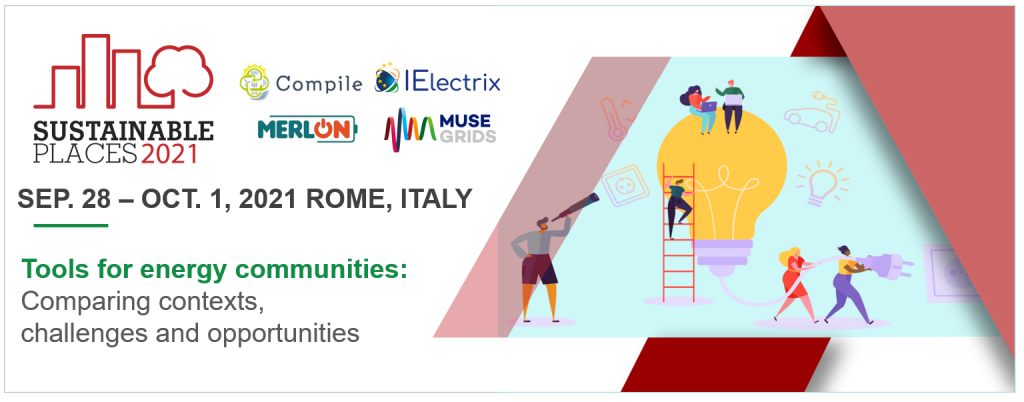"Energy Communities: how tools can facilitate their enhancement" workshop
14:30 – 16:00, 30th September 2021, hybrid

This 90-minute hybrid workshop had the aim to facilitate the interaction between the speakers and the audience in order to discuss how the set-up, design and management of energy communities could be facilitated by the adoption of tools from different perspectives (municipalities/users/aggregator/DSO etc..). The discussion provided suggestions and ideas on how to improve the current set of tools already available and identified the skills each tool has to have to support energy communities all over Europe.
The session offered an overview of different tools for the optimisation of local energy networks and how to facilitate the grid interaction, developed and narrated through the eyes of technology leaders representing four H2020 projects. The session offered a unique opportunity to discuss the different approaches, compare the framework, practices and tools of energy communities. The session also included a review of the technical aspects of designing various local energy systems, while taking into account the goals of energy community members and outside actors.
The development of projects sharing in situ renewable energy is carried out in a variety of configurations and for a variety of stakeholders. Other than discussing the optimal technical solutions from an economic point of view, the workshop discussed the reconciliation of the energy communities’ stakeholders.
Questions that were answered:
- Which are the skills and tools to support energy communities? municipality, energy community manager (MUSE GRIDS); user (Compile); energy community as an aggregator or DSO (MERLON, IELectrix).
- How to establish and operate energy communities in integrated local energy systems?
- Opportunities and impacts of digital technologies for energy communities
- From tools development to a living energy community project
Methodology:
90 minutes session with 4 presentations from speakers and moderated panel discussion. The session was interactive and dynamic. The speakers used slides to convey key messages, but the audience was involved through a moderated Q&A session between the speakers and the audience. To maximise the output of the debate, a series of cross-questions for the speakers was also developed.
Agenda:
- Introduction from moderator and opening polls: 10 minutes
- 5 minute-presentationsx4, alternated with interactive polls: 30 minutes
- Panel discussion: 45 minutes (of which, 10 minutes will be for audience questions)
- Closing remarks: 5 minutes
Outcome: present and identify best practices under different perspectives that can maximise the output of energy communities.
